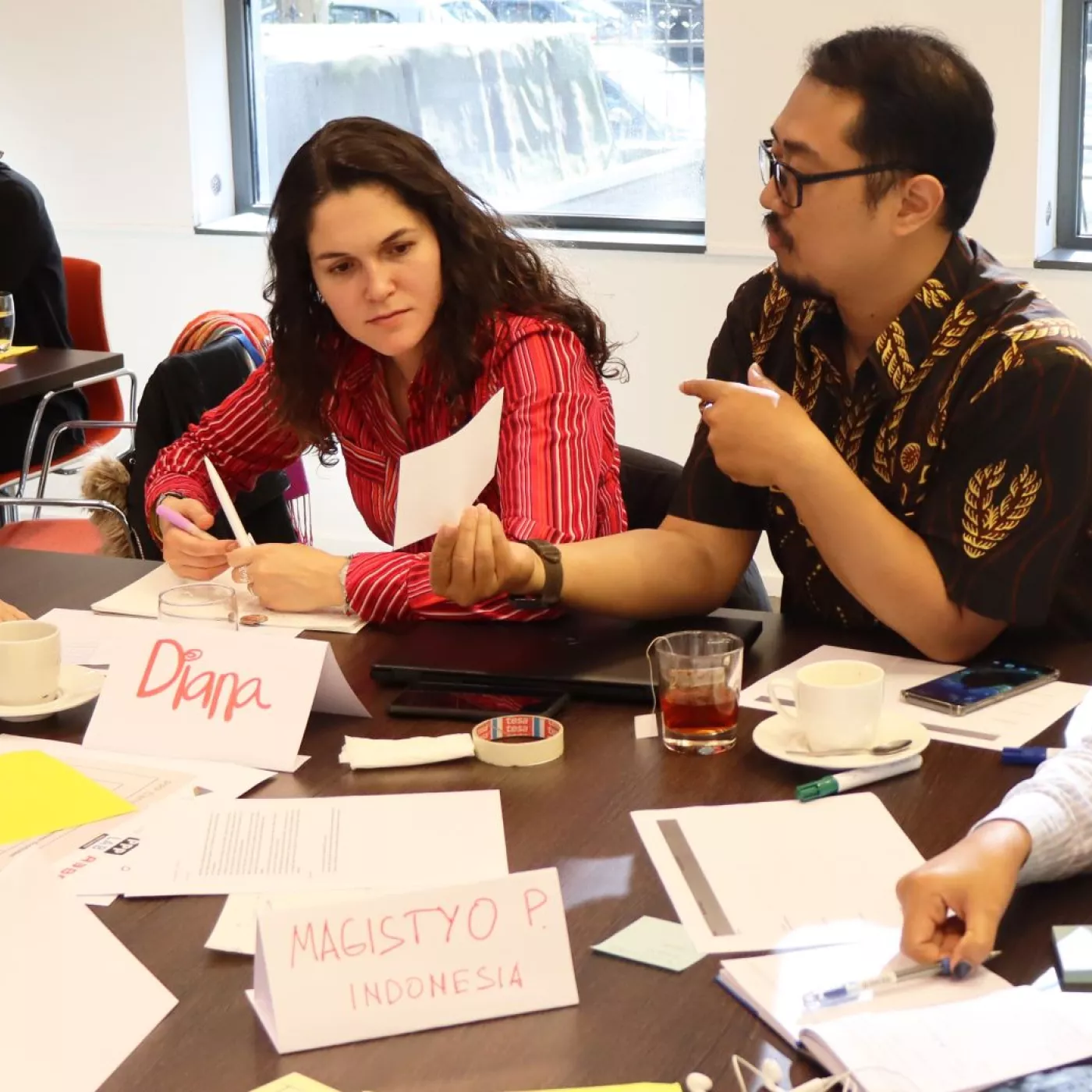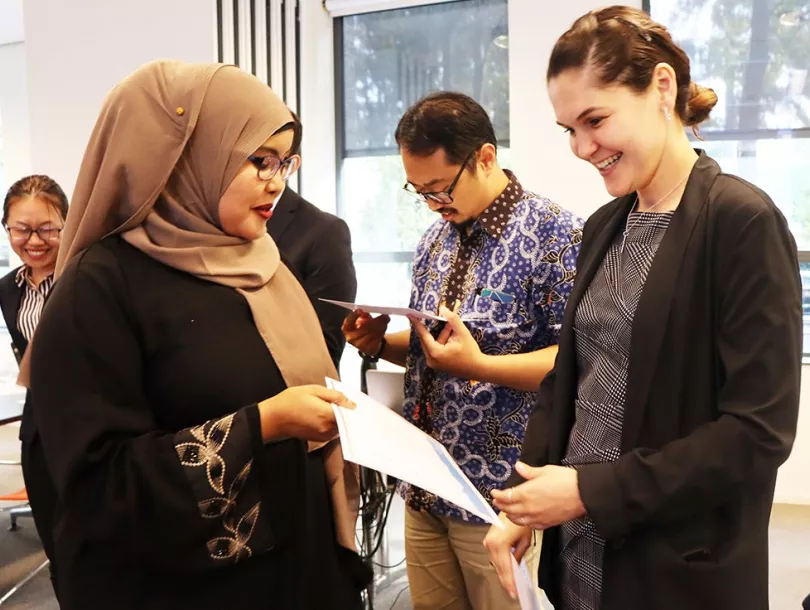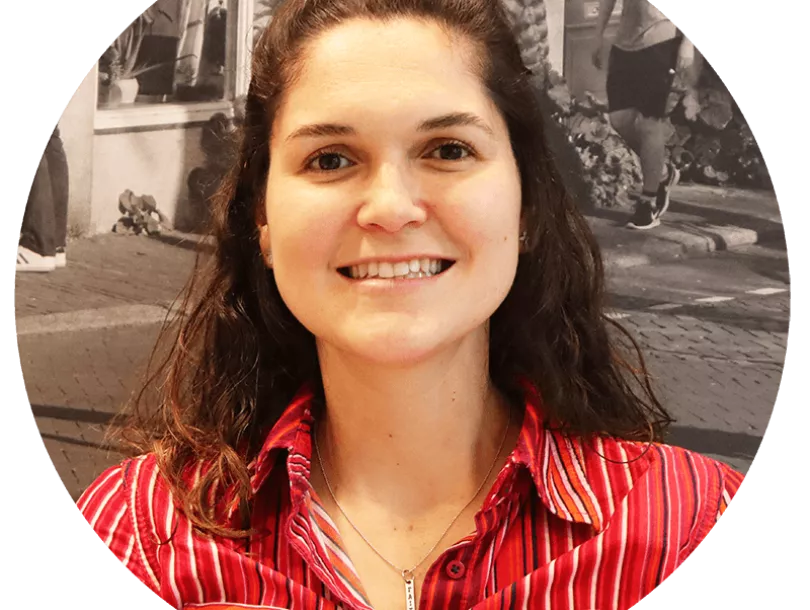Orange Knowledge Programme has ‘Youth at Heart’

Recently, our funder – the Dutch Ministry of Foreign Affairs – launched a new strategy on youth called ‘Youth at Heart’. The countries in its focus regions (Sahel, Horn of Africa, Middle East and North Africa) all have very young populations, which present immense opportunities but also serious challenges. In Africa alone, 12 million young people enter the labour market each year, while only 3 million new jobs become available.
To keep pace with these trends, the Netherlands is increasingly putting youth at the heart of its development policies. It invests in education and youth employment in order to improve prospects for young people. It does so through a distinctive approach that bridges the gap between the skills they learn and labour market demands.
Vital skills for the future include not only digital skills but also complex cognitive skills, like analysing data, problem-solving abilities and critical thinking. Social and emotional skills will also become more important in tomorrow’s workplace, and must therefore be developed at school.
What will the Netherlands do?
The Netherlands aims to improve young people’s knowledge and skills relevant to the modern-day labour market and enable them to reach their full potential. The strategy targets people from age 15 in the aforementioned focus regions. To achieve this goal, better and more equitable access to relevant, high-quality education and training, with a strong focus on vocational education, needs to be created.
In choosing interventions, local challenges and opportunities will be the decisive factor. In some cases this means improving existing education, in other situations making education more accessible to members of vulnerable groups, which – in addition to women – the strategy takes explicit account of.
Vital skills for the future include not only digital skills but also cognitive skills, like analysing data, problem-solving abilities and critical thinking.
Regarding education, the Youth at Heart strategy aims to:
- Encourage cooperation between educational institutions, the private sector and/or trade unions;
- Encourage and facilitate educational institutions and businesses to offer young people work placements and apprenticeships;
- Improve the practical knowledge and skills of teachers working in vocational education, for example through refresher training;
- Strengthen training in business skills, specifically in vocational education and training;
- Provide psychosocial support for vulnerable young people who are prevented by trauma or stress from attending school or going to work;
- Encourage government authorities and educational institutions to recognise foreign qualifications and acquired competences so that the target group is more easily admitted to vocational education;
- Provide crash courses for young people with a learning deficit due to low primary school attendance, or lack of skills needed to participate in education or society;
- Promote learning opportunities outside formal education, through online platforms or youth hubs.
- Provide students and pupils with information on the labour market.
What does this new strategy mean for the Orange Knowledge Programme?
We are happy to see that the new strategy underlines the value of the interventions we make. The Orange Knowledge Programme and its previous capacity development programmes have created opportunities for young people by improving education systems of higher and vocational (TVET) education. Schools’ curricula are more aimed at problem-based learning and contain more practical skills development to meet the job market’s demands. Graduates are better equipped to enter the working force. Teachers and staff are trained in specific aspects of entrepreneurship and business development to trigger an entrepreneurial mindset in students. In collaboration with private sector, incubator centres for students are often established, offering students a chance at kick-starting their own venture. Professionals have been trained for productive sectors and companies are offered opportunities-targeted Tailor-made Training and scholarships.

Teachers and staff are trained in specific aspects of entrepreneurship and business development.
In this integrated approach, we manage to increase collaboration between knowledge institutions, local governments and companies to create more support and the change sustainable.
We strongly recommend our programme implementers further emphasise inclusion of youth, specifically women and deprived groups like refugees or minorities. Not only in the focus regions, but also in other parts of the world where our programme is available. Secondly, we encourage you to share your efforts on this topic with us, and on social media. Our programme is the living proof this policy is crucial and is paying off with regard to offering young people opportunities for a better future.
"The course taught me the importance of building partnerships and coalitions among universities, productive sectors and local actors."

How Orange Knowledge Change Makers are creating impact for young people
After a 50 year-long conflict with guerrilla groups in Colombia, the government pinpointed youth as a priority group for sustaining peace. The high rate of youth unemployment was identified as one of the main issues to tackle. However, existing policies did not reflect on these priorities yet.
Dahiana Manjarrés works for the Directorate of Creation and Protection of Employment of the Colombian Ministry of Labour, and she is in charge of mitigating employability barriers that stand in the way of social inclusion. In 2019, she applied for an Orange Knowledge scholarship. “I was mostly interested in learning tools to promote income generation strategies, employment, and entrepreneurship for youth in the rural and urban contexts.’’
She attended the course ‘Local Economic Development training’ at The Hague Academy for Local Governance. Together with a group of 18 government and development professionals from 15 different countries she learned how their countries face similar challenges around the pursue of ‘development’. “The course taught me the importance of building partnerships and coalitions among universities, productive sectors and local actors to promote employment using innovative solutions.”
Upon her return to Colombia, Dahiana managed to introduce a national decree to facilitate youth employment. It targets people between the ages of 18 to 28 with a university degree and no previous work experience. It sets regulations for giving young people a chance to have their first work experience as temporary staff for public entities. Dahiana and her team provided local development with a series of tools to promote youth employment.
In addition, she and her team managed to adjust the article on inclusive employment of the National Development Plan. With this change, for the first time, Colombia established actual mechanisms, tools, actions, and services to promote inclusive employment and to mitigate the barriers for people to enter the labour market.
Upon her return to Colombia, Dahiana managed to introduce a national decree to facilitate youth employment.
“I firmly believe that youth employment plays a key role in future-proofing and strengthening any nation’s economy”, says Dahiana. “Therefore, I applaud the Dutch government’s initiative to provide employment benefits, targeted to boost the inclusion of youngsters in the workforce sector as well as in the education sector. This not only allows young talent to continue to focus on getting into the workforce in a field of their interest, but it also sends a clear message about the interest of the government to support the future of the nation’s workforce. Due to financial hardship and lack of government incentives, almost 600,000 young people in Colombia are not working nor studying. This is the case in many other countries as well. Therefore, it is more critical than ever that we join forces to assure access for young people to vocational education and the workforce.”
Youth at Heart
Read more on the new Youth Strategy and the opportunities our programme offers to contribute to this strategy with a heart for the young generation.